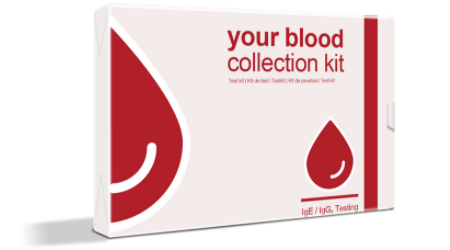As you can probably guess, an intolerance test can determine whether or not you have lactose intolerance amongst other possible hundreds of intolerances. These tests are designed to help you identify and discover what intolerances you may have instead suffered from uncomfortable and painful symptoms without any idea as to what is causing them. Common examples include flatulence, diarrhea, bloating and abdominal pain. If you’re looking at getting a handle on these, order an intolerance test today! Still looking for more information? There’s plenty below to help inform you on lactose intolerance and just what it does to your body.
What is lactose intolerance?
As far as what formal studies have shown, lactose intolerance that is medically confirmed is when someone is unable to effective digest the recommended amount of servings of lactose-including foods without dealing with “gastrointestinal discomfort” [1]. This is just a fancy way of saying that eating lactose products makes them uncomfortable in their stomach and digestion areas.
This sounds pretty broad (which it is), which is what leads many medical professionals to diagnose patients with irritable bowel syndrome (IBS) instead of lactose intolerance [2]. It’s thought that many people who supposedly have IBS actually have a poorly understood food intolerance. The data shows that more than 20% of the population in developed countries are living with some form of food intolerance, which means that proper diagnosis and documentation of food intolerances becomes critical to properly treating the right condition [3].
While this is still under research, some studies have shown that patients can increase their tolerance to lactose products with regulated and proper exposure to those foods [1]. However, those with higher levels of intolerance don’t often find comfort from this kind of treatment.
How to treat lactose intolerance
You’ve probably heard of how dangerous food allergies are, and you’ll be relieved to learn that intolerances don’t cause any damage to the body if you eat the offending foods. However, symptoms can be very uncomfortable, so learning how to make proper use of an elimination diet, a specialized diet that helps eliminate the problem foods from your day to day eating, will help you to manage it. As far as long-term health and comfort Test Your Intolerance recommends a combination of an intolerance test and a carefully designed elimination diet to help you manage symptoms. After taking a test, and identifying what your body can and cannot tolerate, and you can then plan your diet around it and life symptom-free. It’s easier than you think and is worth the learning curve.
There are many people who have no idea that they even have a food intolerance in the first place. But, if you have any of the following symptoms, you might just be suffering needlessly. Studies show that most people suffering from lactose intolerance are dealing with flatulence in varying amounts, distention or bloating, and diarrhea, among others [3].
Flatulence
Flatulence is one of the major symptoms of lactose intolerance, and it often is embarrassing when dealing with it in public. It can be quite difficult for people who are suffering from lactose intolerance, as dairy is a main staple in most mainstream diets. For example, many people will have a glass of milk before they go to bed, or some cheese and biscuits as digestives (ironically) after a hefty meal. If you are lactose intolerant, then you can no longer do this and should find better alternatives.
Bloating
Bloating is another common symptom of lactose intolerance. If you are consuming dairy products such as milk, cheese, and some sugars and then feeling ill, you may be suffering from a dairy intolerance. This can make you feel puffy or bloated, often at the most opportune moments. By identifying lactose intolerance, you can eliminate lactose from your diet and therefore stop the bloating effectively.
Diarrhea
Diarrhea can be extremely embarrassing for many people, especially because it tends to come and go with no warning what-so-ever. Nobody likes to constantly run back and forth to the toilet, and so if you can avoid getting diarrhea on a date or at a dinner party, you should! That being said, diarrhea is not necessarily only caused by a food intolerance and can be caused by many other health conditions as well. Find out if a food intolerance is causing your diarrhoea by ordering a test today! It is important that you consult your GP should your symptoms not subside after an elimination diet, or if your symptoms worsen over time.
Want to know a bit more about living with a food intolerance? Please speak with our Customer Service advisors who are available to talk to on a 24-hour basis, 5 days a week. You can contact them on LiveChat via www.testyourintolerance.ca and ask them about all of your intolerance-related questions.
References
[1] Swagerty Jr, D.L., Walling, A. and Klein, R.M., 2002. Lactose intolerance. American family physician, 65(9), p.1845. Available at: https://www.aafp.org/afp/2002/0501/p1845.html
[2] Shaw, A.D. and Davies, G.J., 1999. Lactose intolerance: problems in diagnosis and treatment. Journal of clinical gastroenterology, 28(3), pp.208-216. Available at: https://journals.lww.com/jcge/Abstract/1999/04000/Lactose_Intolerance__Problems_in_Diagnosis_and.5.aspx
[3] Zopf, Y., Hahn, E.G., Raithel, M., Baenkler, H.W. and Silbermann, A., 2009. The differential diagnosis of food intolerance. Deutsches Ärzteblatt International, 106(21), p.359. Available at: https://www.ncbi.nlm.nih.gov/pmc/articles/PMC2695393/



